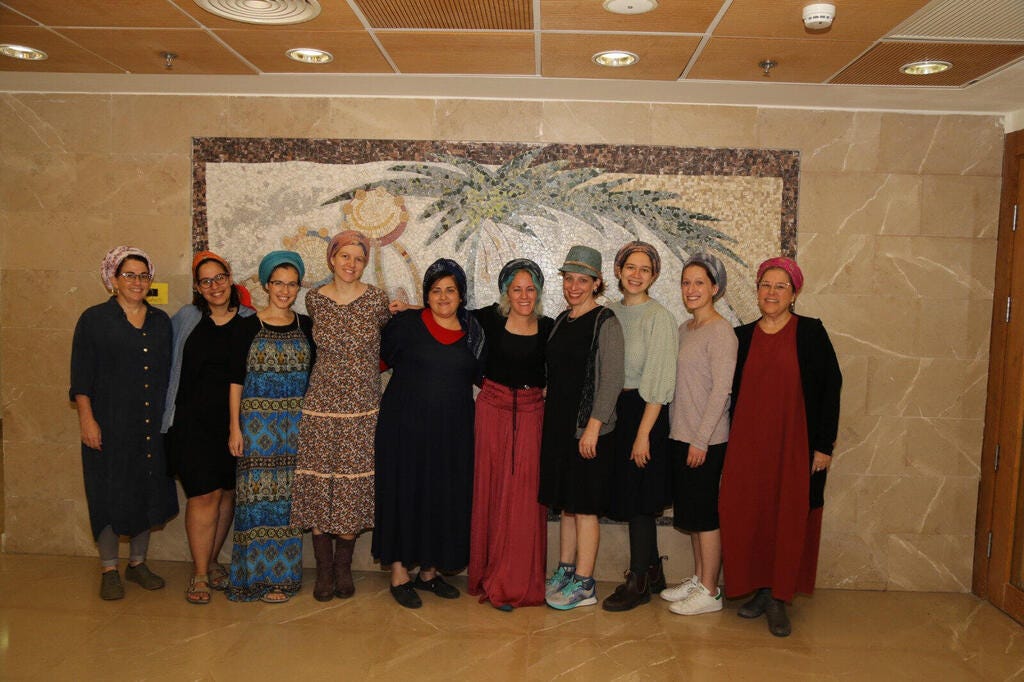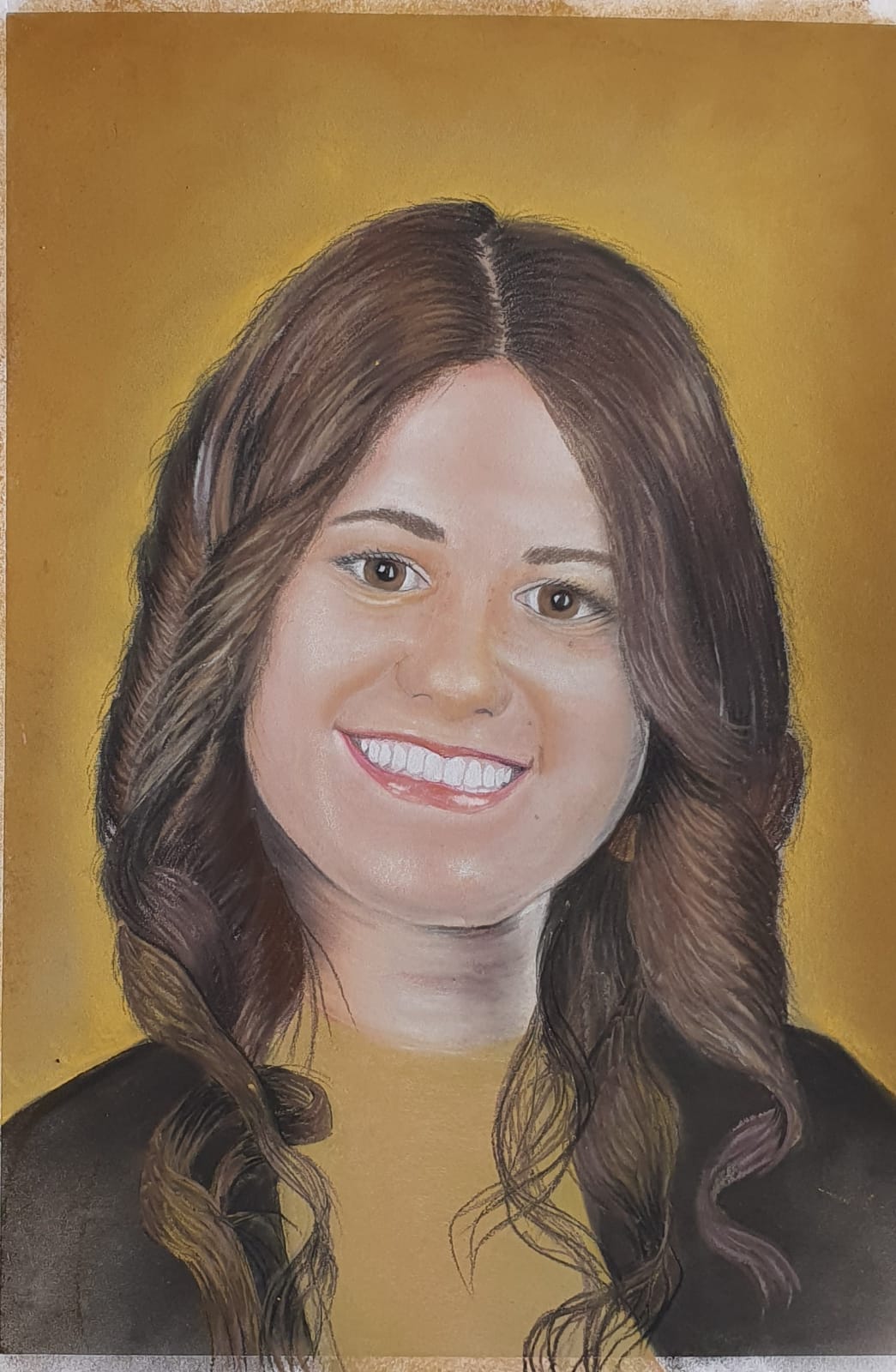Passing the torch to the next generation of Jewish feminists: Guest post by Tari Sztokman
I've been so inspired by my niece, Tari Sztokman and by the world that she is helping create. Here she shares her insights into Orthodox feminism
Today, history was made for Orthodox women in Israel as a group of 17 women officially sat for the rabbinical exams given by the State of Israel. While this does not necessarily mean that they will all be called “Rabbi”. even if they pass, it probably means that they will have career options that Orthodox Israeli women have never had before. And who knows where else this will lead. It is a moment that has been decades in the making, with many people having a hand in bringing us to this place.
In a recent conversation with my niece, Tari Sztokman, who is currently working as a madricha (counselor) in a women’s yeshiva in Israel, I realized that these events have crafted a reality for her that is unlike any that I had open to me when I was her age. In fact, when I was 20 years old, “Orthodox feminism” was not a phrase in the vocabulary of anyone I knew, there were no organizations claiming that mission, no partnership minyan, no Orthodox feminist journals or conferences, and certainly no Orthodox female clergy of any kind. By contrast, today Tari has many paths to choose from and many role models to emulate.
And for me, having spent over 25 years in the throes of feminist activism, I am fully ready to pass the torch and be led by women like Tari.
As part of my stepping aside, I am giving over this space to a thoughtful essay by Tari about Orthodox feminism.
Orthodox feminism
I had an experience recently that filled me with gratitude for my place in history.
When Simchat Torah came around this year, I felt conflicted between going to lein in a women’s Torah reading as I normally do, or, instead supporting my chanichot [my youth group kids] who would choose not to attend such an event. This choice, in essence, was one between living my own feminist ideals, or supporting other women to pursue their own values and their own beliefs. I decided to support my chanichot, telling myself that there is always next year.
When looking back at this, my heart swells with pride and gratitude for the women who came before me, for the feminists who gave their all to creating a better world for me and my generation. They worked to make sure that women’s Torah reading is (somewhat) normalised, that I can have the privilege to skip out one year, certain that it would exist in the year to come. My generation of Orthodox women are the most privileged ones yet, and hopefully the next one will be even more privileged than we are. (When I refer to privilege here, I refer to in comparison to women historically, not that we are indebted to being allowed space within Judaism as women).

Looking at the women in my community (Modern Orthodox Melbourne) around my age, I see an important trend: The majority of the women who observe Halacha to the highest degree are also feminists. They are not merely both feminists and dedicated oOthodox Jews, but rather they are women whose identities are intrinsically intertwined, fused together to become something almost inseparable. Their Judaism is one that is informed by feminism, and a feminism that is informed by Judaism. Perhaps the largeness of this trend that I’ve noticed is simply a case of confirmation bias, but perhaps it is not.
Of course, it is difficult to think of what I had just written as being created in a vacuum. The very language it adopts is one that is informed by common sexist rhetoric in both orthodox and wider secular society. “What are women’s motives?” we frequently here, for example. In Orthodoxy, this becomes slightly more pointed as the question adapts to: “Do these women truly care about Halacha or do they just want change? Will their changes lead to the downfall of the halachic system?” The women who I see around me answer this question through their actions: “We care deeply about Halacha, our feminism comes from a place of wanting to create a fairer Orthodox world, one within the bounds of Halacha”.
Within this non-threatening reply is perhaps a symptom of internalised misogyny. We feel that the only way to create change is through beseeching gently, moulding our actions to the status quo to ensure that those not wanting change are content. Is this the right response? I don’t know.
For I believe that so engrained within the Halachic system is sexism, that it is impossible to truly act fully on ones feminist ideals and leave Halacha standing. The Torah’s masculine language, the lack of women in classical Jewish thought, whilst these are all products of their time, are so foundational in Halacha and its hierarchical system of precedence that it is impossible to remove it without destroying the entire system.
I think that this is what Orthodox Jews who are apprehensive of feminism worry about (although they probably wouldn’t word it this way). And it is something that I struggle with too. The somewhat comforting, yet also harsh words of my women in Halacha teacher said, that resonated so deeply with me that I wrote it in the front of my source book: “These are our confines, but we must make space within them.”
This is what being an Orthodox feminist means to me, to be wholeheartedly aware of the systemic sexism that defines our Judaism. To struggle, to battle with these ideas. To be committed to creating a better orthodoxy for ourselves and for generations to come.
For even in wider, secular society, the roots are the same. Our world is so steeped in sexism that to believe that it can be cured is a fallacy. That would require an erasure of history, an erasure of our experiences and of ourselves. Whilst this is more obvious within the world of Halacha, its presence is insidiously hidden beneath the surface of secular society. In our world, creating “best” or perfection is impossible, our job is to simply strive for better.
####
Tari Sztokman is a student of Music History and Literature at The University of Melbourne about to embark on a semester abroad exchange student program at Birmingham University. She is a madricha (counselor) at Midreshet Lindenbaum, a former madricha in Bnei Akiva in Melbourne, Australia, an avid Gemara learner, and a gifted cellist.
Keep reading with a 7-day free trial
Subscribe to The Roar to keep reading this post and get 7 days of free access to the full post archives.





